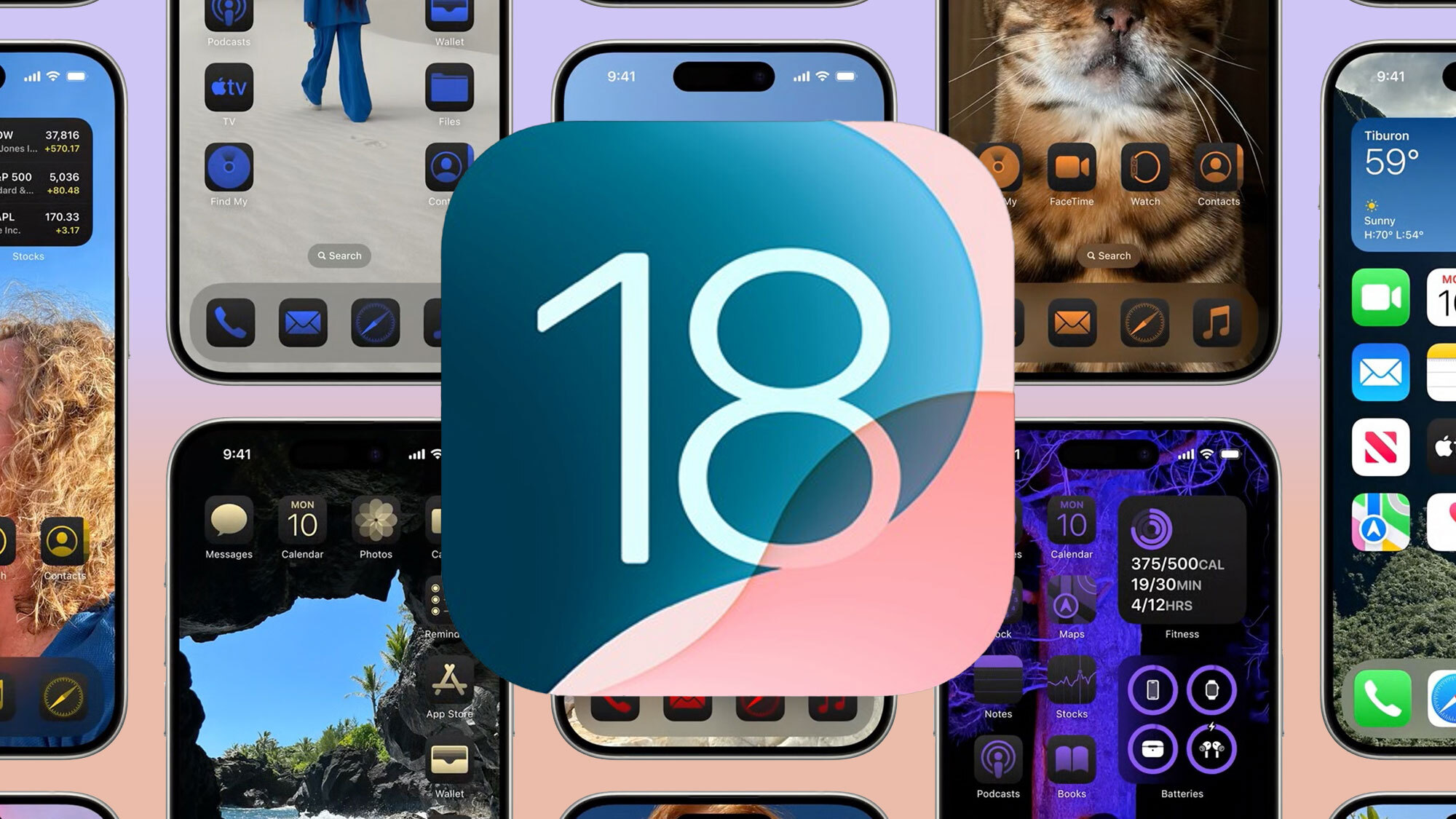
iOS 18 may have landed back in September, but the features keep rolling out to Apple's iPhone software. October brought us the release of iOS 18.1, which delivered the first set of Apple Intelligence tools to compatible iPhones. And now we're ending 2024 with another update, as iOS 18.2 expands the number of AI-powered features on board the iPhone 16 and iPhone 15 Pro models.
By now, most current iPhone owners have probably downloaded iOS 18 onto a compatible iPhone. But if you're one of the holdouts — or if you're just overwhelmed by the changes Apple has introduced with the initial iOS 18 release and subsequent downloads — consider this a handy reminder of what you get from an upgrade to the new software.
Between new features like a reworked Photos app, more customizable Home Screen, an updated Control Center, improved privacy options new interactivity options with macOS Sequoia, there's plenty to check out. And that's before addressing the Apple Intelligence additions available to some, though not all, iPhone users.
You can read our full iOS 18 review to get our thoughts on all of those additions. But here's a rundown of everything to explore in iOS 18.
iOS 18 cheat sheet: Biggest upgrades
Check out our round-up of the iOS 18 features to try first once you've installed the update. Here's a quick overview of what the software update introduces.
- Home screen: App icons and widgets can now be placed freely rather than in the left-to-right and top-to-bottom, and can use specific dark mode icons and other custom tints.
- Control Center: You can now access multiple pages of controls just by swiping and holding from the top right corner of your phone's display. A Controls Gallery lets you customize the interface freely with Apple-made and third-party options.
- Lock screen: Your two on-screen shortcuts can be changed from the default flashlight and camera combo. The same goes for the Action button on iPhone 15 Pro.
- Privacy: Lock An App lets you lock an app behind Face ID, Touch ID or a password, and hide information from on-device searches. "Hide an app" lets you conceal apps in a locked folder in the App Library. Contacts can now be kept from apps rather than giving blanket permission, and connecting Bluetooth devices can now use a new security-forward interface.
- Messages: Tapbacks (message reactions) can now work with any emoji or sticker, while Send Later lets you schedule messages and improved formatting lets you italicize, underline, bold or strike-through messages. Text effects have also arrived to make your messages more lively, with automated or manual options available. Apple's also allowing iPhone 14 and later models with satellite connectivity to send messages via satellite too, be it iMessage or SMS texts.
- Mail: On-device categorization wasn't part of the initial iOS 18 update, but the feature's available now. It helps you filter emails automatically, such as keeping newsletters or sales receipts away from personal messages. For Apple Intelligence-ready phones, a summary tool uses AI to generate summaries of lengthy email threads, and inline summaries now appears with messages in your inbox for quick reference.
- Maps: Topographic maps with walking routes have been added (with offline access available).
- Wallet: Tap to Cash lets you send money by bringing your iPhone next to someone else's. Apple Pay now works with loyalty points etc., and digital tickets now have a refreshed look.
- Journal: A new Insights view to show stats, search to help you find old entries
- Game mode: This is designed to minimize background activity to keep performance high and latency with controllers and wireless headphones.
- Photos: A fresh look for this crucial app keeps your grid and library on the same screen, with filter and time scale options offered to help navigate. The Collections view shows specific sets of photos with screenshots and other uninteresting images filtered out to make an attractive collage. A carousel of favorites and featured photos takes pride of place at the top of the app to surface your best shots.
- Apple Intelligence: Periodic feature drops have already given us writing tools, image generation and photo editing capabilities and the initial revamp of Siri that's set to continue into 2025, as Apple works to make its digital assistant more aware of context.
iOS 18: Release date
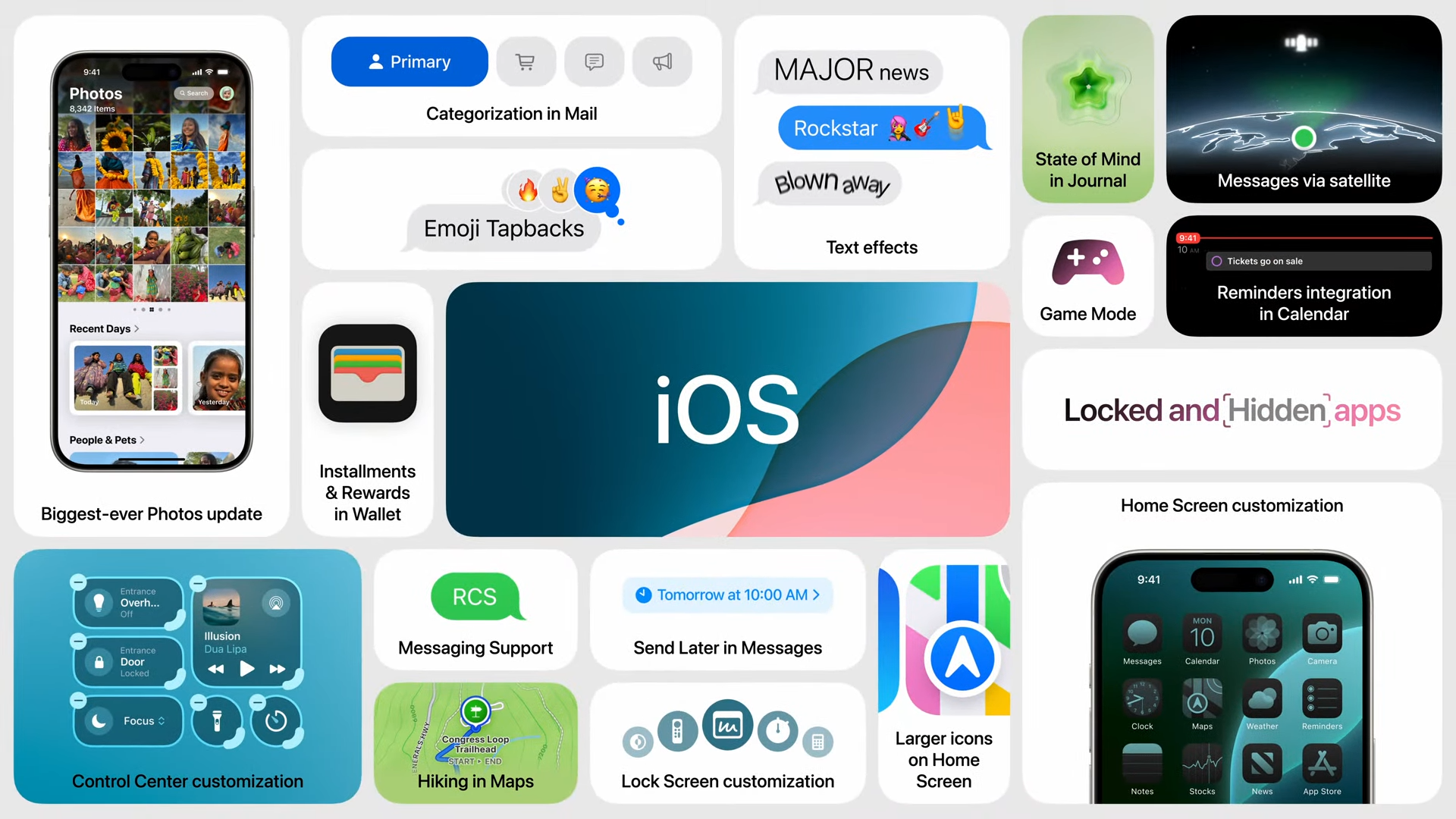
iOS 18 landed on September 16, just ahead of the latest iPhone 16 models that arrived in stores September 20. iOS 18's launch followed a public beta process that began in July, roughly a month after Apple previewed iOS 18 during WWDC 2024.
iOS 18 isn't the only software update that went live in September. iPadOS 18, watchOS 11, tvOS 18 and macOS Sequoia are now live, too. The iPad and Mac software have also seen updates along with iOS 18, as Apple Intelligence features have been added to those devices, too.
Even with iOS 18 available for months, the beta process continues. iOS 18.2's arrival means that an iOS 18.3 beta should appear shortly, first for developers and later as a public beta. We don't expect that update to get a full release until 2025, though.
iOS 18: Supported devices
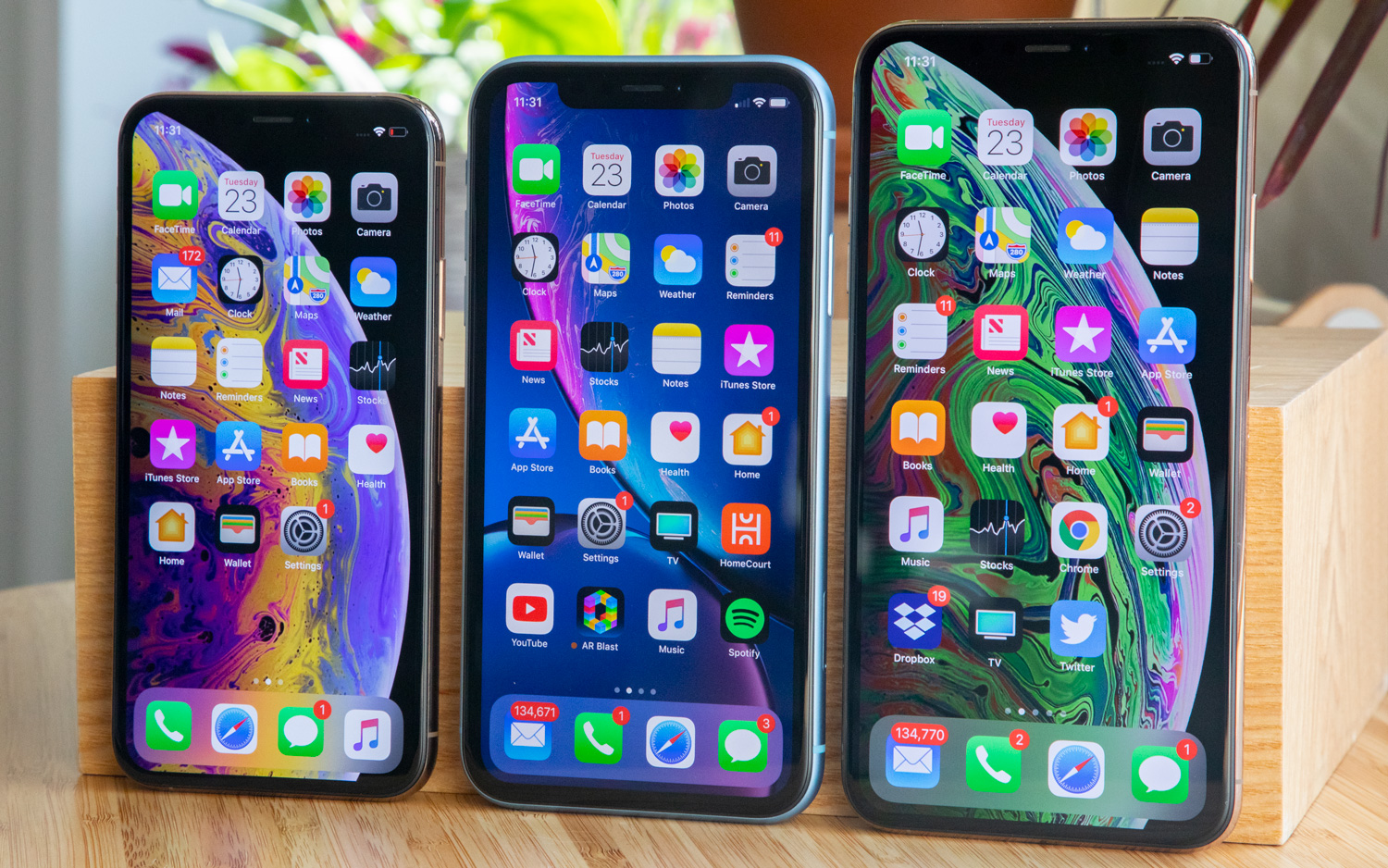
iOS 18 supports all of the iPhones dating back to the iPhone XS and iPhone XR and newer. Here's a full list. Just note that Apple Intelligence needs an A17 Pro chip, so you'll need the iPhone 15 Pro, iPhone 15 Pro Max or one of the four new iPhone 16 models.
- iPhone 16
- iPhone 16 Plus
- iPhone 16 Pro
- iPhone 16 Pro Max
- iPhone 15
- iPhone 15 Plus
- iPhone 15 Pro
- iPhone 15 Pro Max
- iPhone 14
- iPhone 14 Plus
- iPhone 14 Pro
- iPhone 14 Pro Max
- iPhone 13
- iPhone 13 mini
- iPhone 13 Pro
- iPhone 13 Pro Max
- iPhone 12
- iPhone 12 mini
- iPhone 12 Pro
- iPhone 12 Pro Max
- iPhone 11
- iPhone 11 Pro
- iPhone 11 Pro Max
- iPhone XS
- iPhone XS Max
- iPhone XR
- iPhone SE (2nd generation or later)
As with previous iOS releases, not every supported phone can run every new iOS 18 feature. Here's a closer look on which iOS 18 features are available on which iPhones.
iOS 18: Home screen
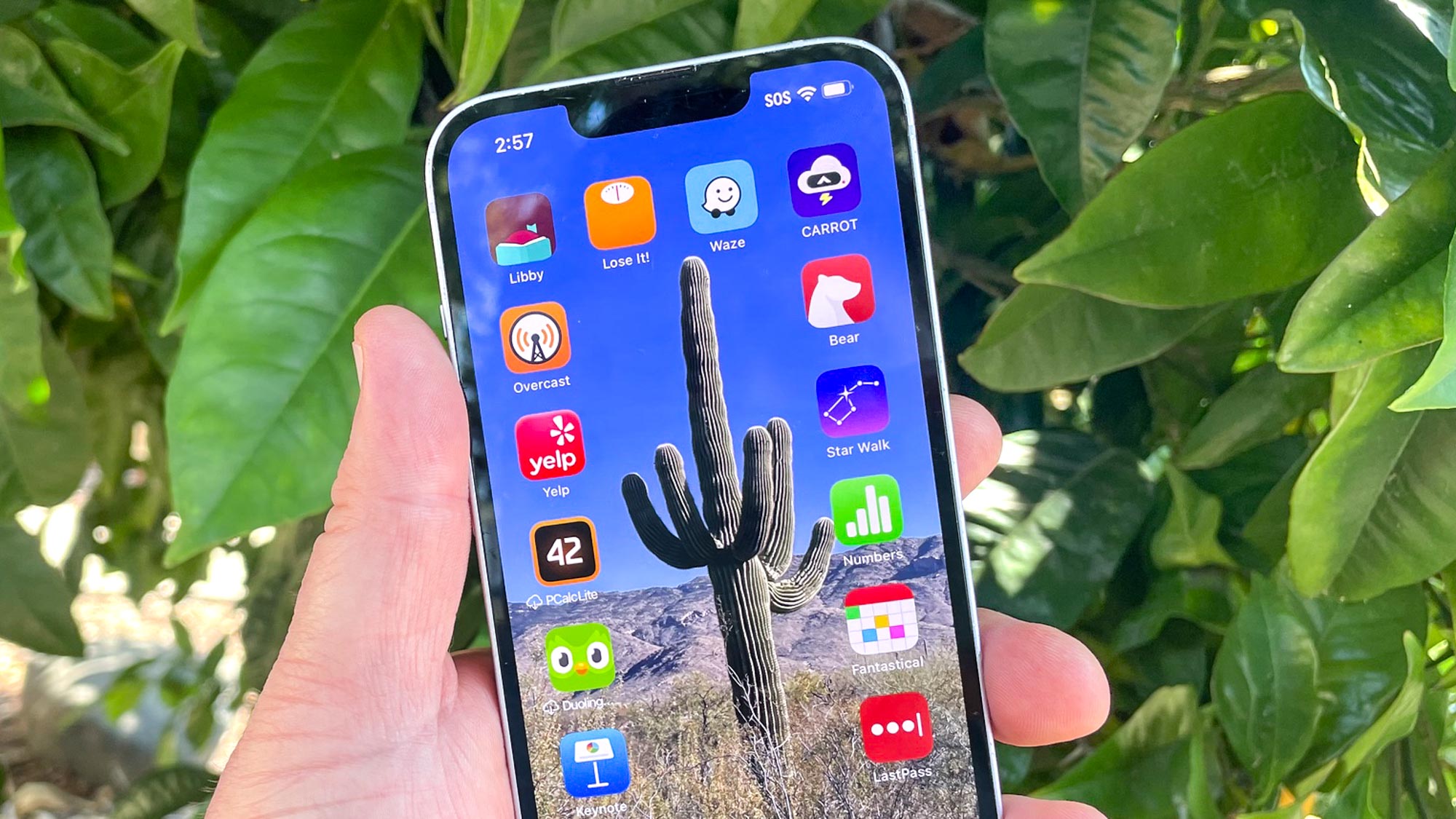
After a decade and a half of fixed home screen app layouts, Apple's finally allowing you to place icons freely on the home screen grid. This way, you can keep certain parts of your home screen app-free so you can admire your wallpaper, or create fun patterns of apps that you couldn't do before.
The icons themselves can now be customized, too. A dark mode option now lets the icons blend-in when the rest of the interface goes into blackout at night, but you're also free to add your own coloring to your icons. An auto option will pair them to the colors found in your current wallpaper, but you can set them manually, too.
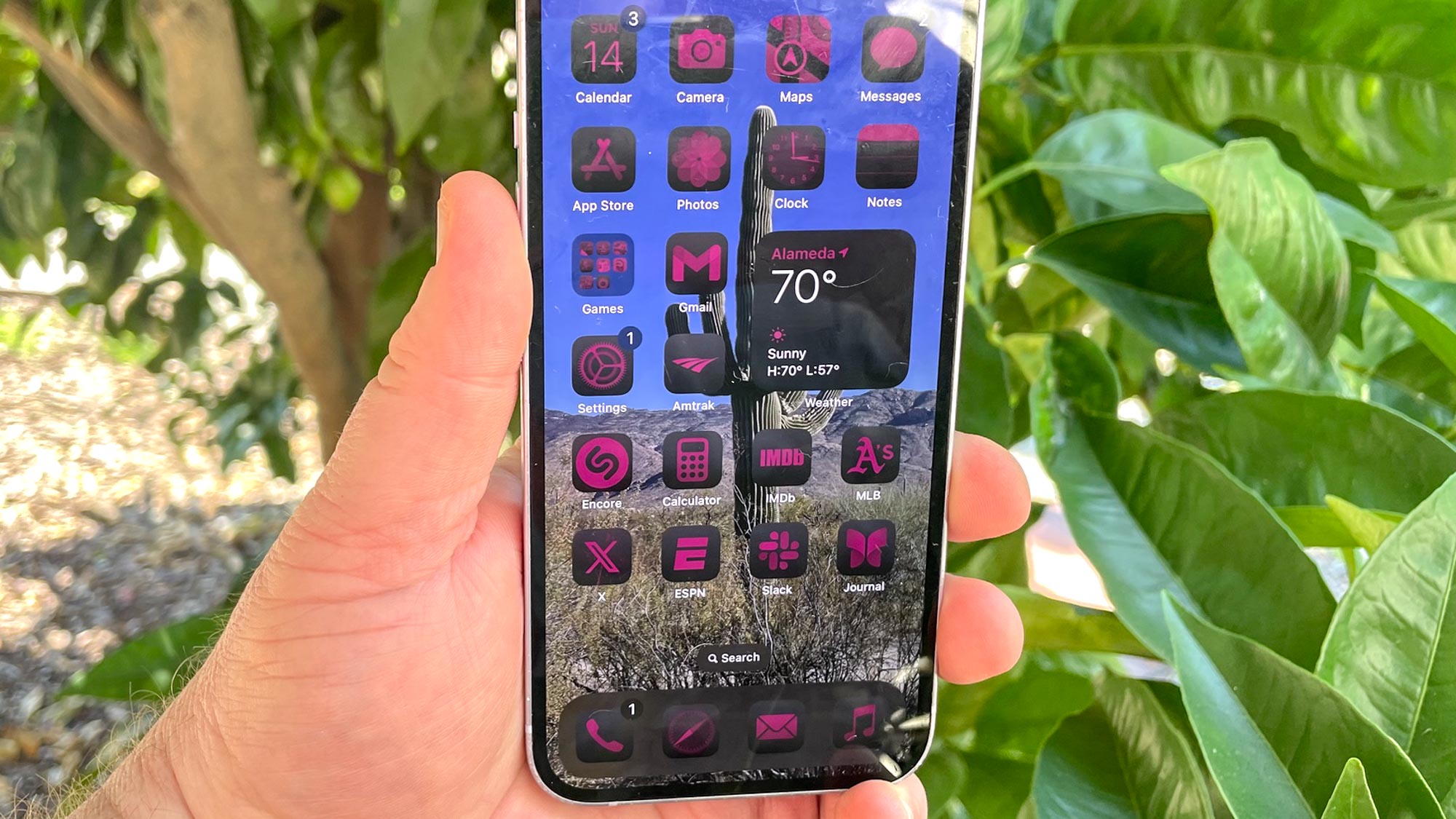
Our guide to the iOS 18 home screen goes into greater detail on the five most significant changes Apple is making, with this increased amount of customization. There's also a small change to iOS's home screen editing that allows you to more easily resize widgets that you can explore.
iOS 18: Control Center
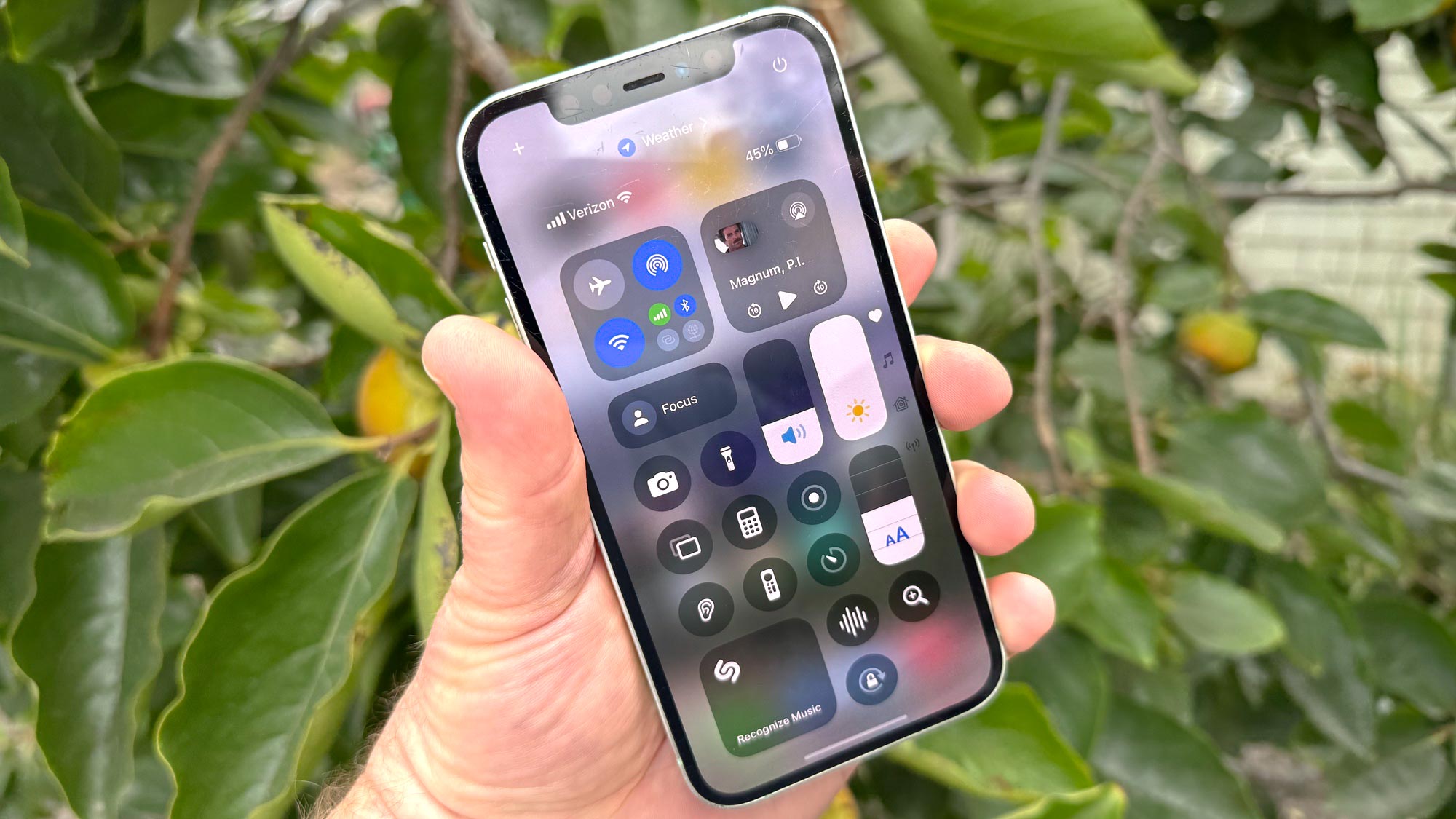
The menu of key iPhone options accessible with a swipe from the top right of your screen just got a big overhaul. In iOS 18's Control Center, Controls can be freely added and removed from a gallery, similar to adding widgets to your home screen, and can be placed on multiple pages as you like.
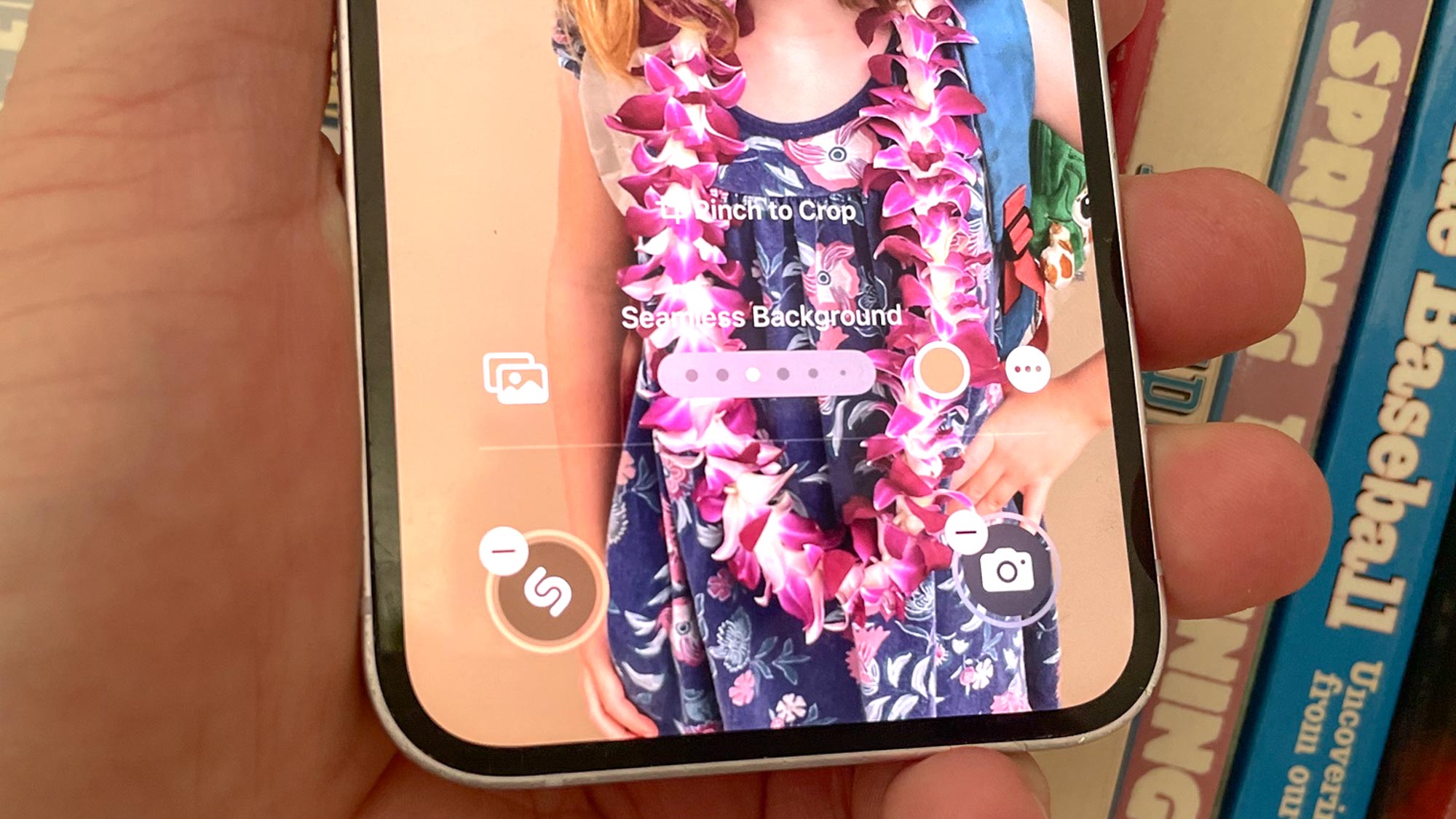
In addition, the two lockscreen shortcuts on your iPhone, currently set to the flashlight and the camera, can be swapped around with icons for other controls. We've got a guide on how to change the lock screen controls as well as some suggestions on which controls are best suited to a place on your iPhone's lock screen.
iOS 18: Privacy features
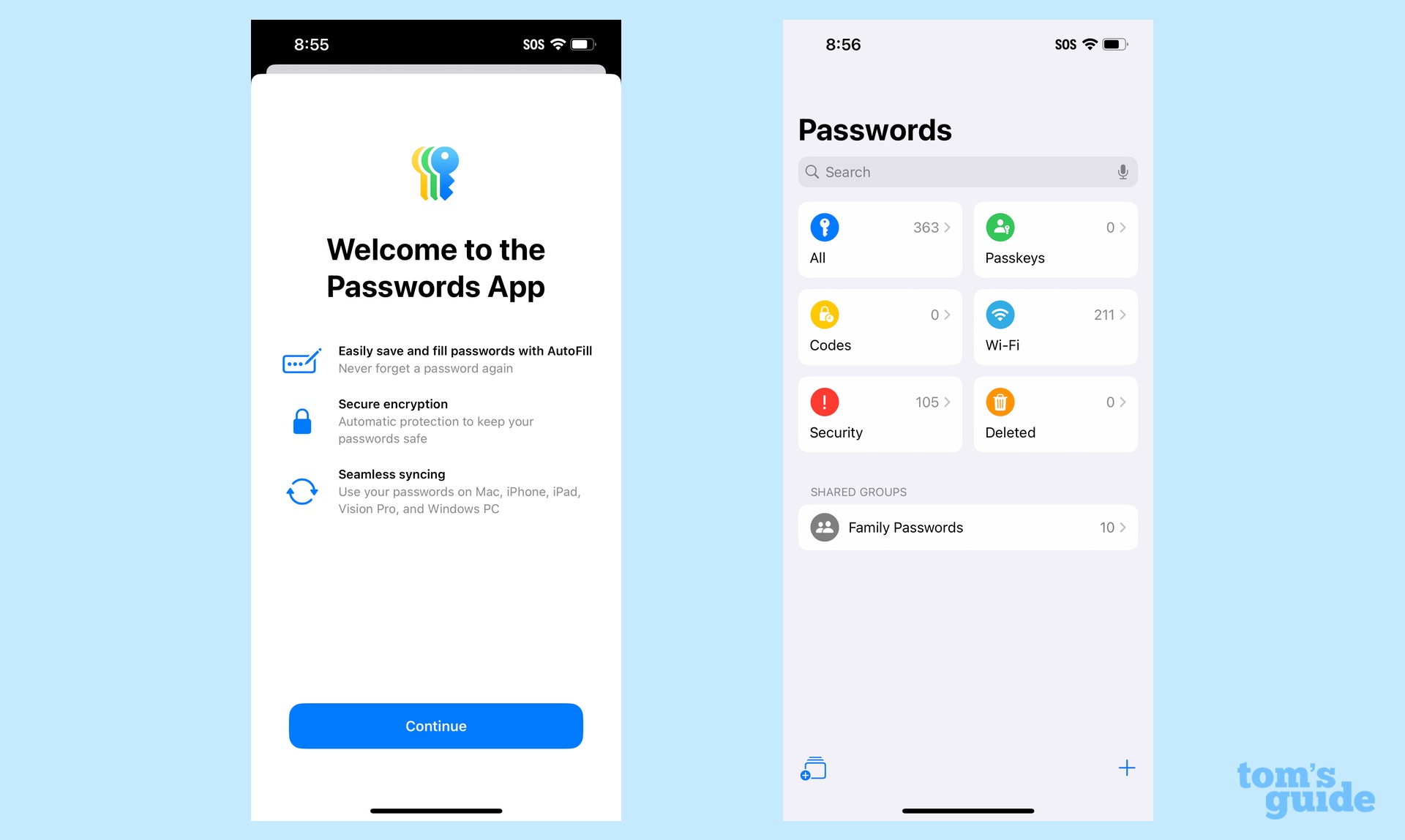
To keep your photos, files and other information safe from prying eyes, iOS 18 now permits apps to be locked behind a passcode or Face/Touch ID or hidden entirely — locked away in a new dedicated folder in the App Library, also locked away.
A reworked app permission now also lets you select which of your contacts an app can access, giving it the go-ahead to interact with only specified people. Similarly, Bluetooth accessories now use a different connection interface that'll help you keep unwanted gizmos from trying to access your phone.
iOS 18: Messages
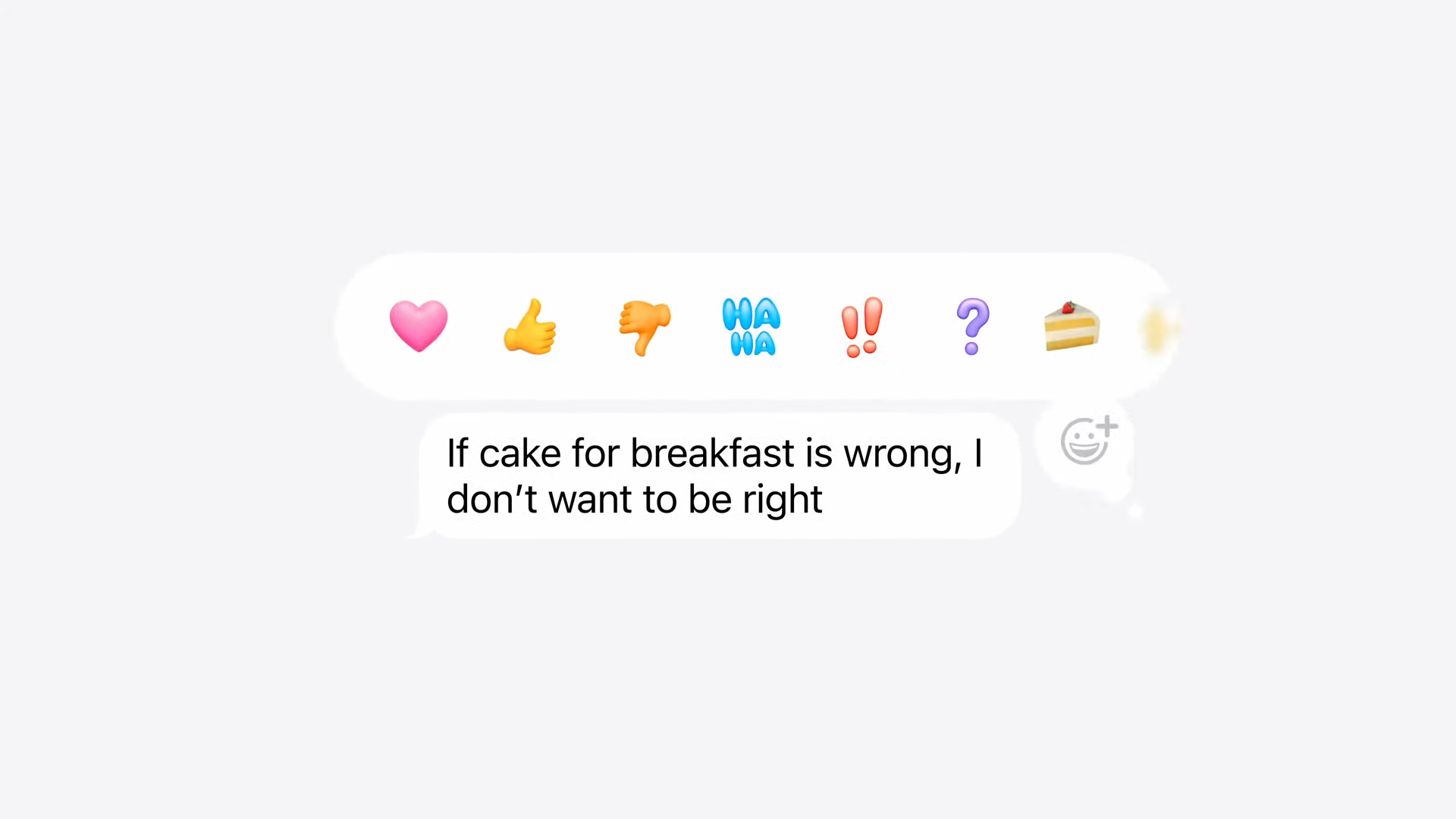
Rather than using pre-approved message reactions (TapBacks in Apple-ish), you're now able to react with any emoji or sticker you can think of in iOS 18 Messages.
You can also make your messages more lively with the new Text Effects menu, adding animation (either automatically or manually set) to certain words or emoji. Or you can more simply format your words with classic bold, italic, underline or strike-through formatting.
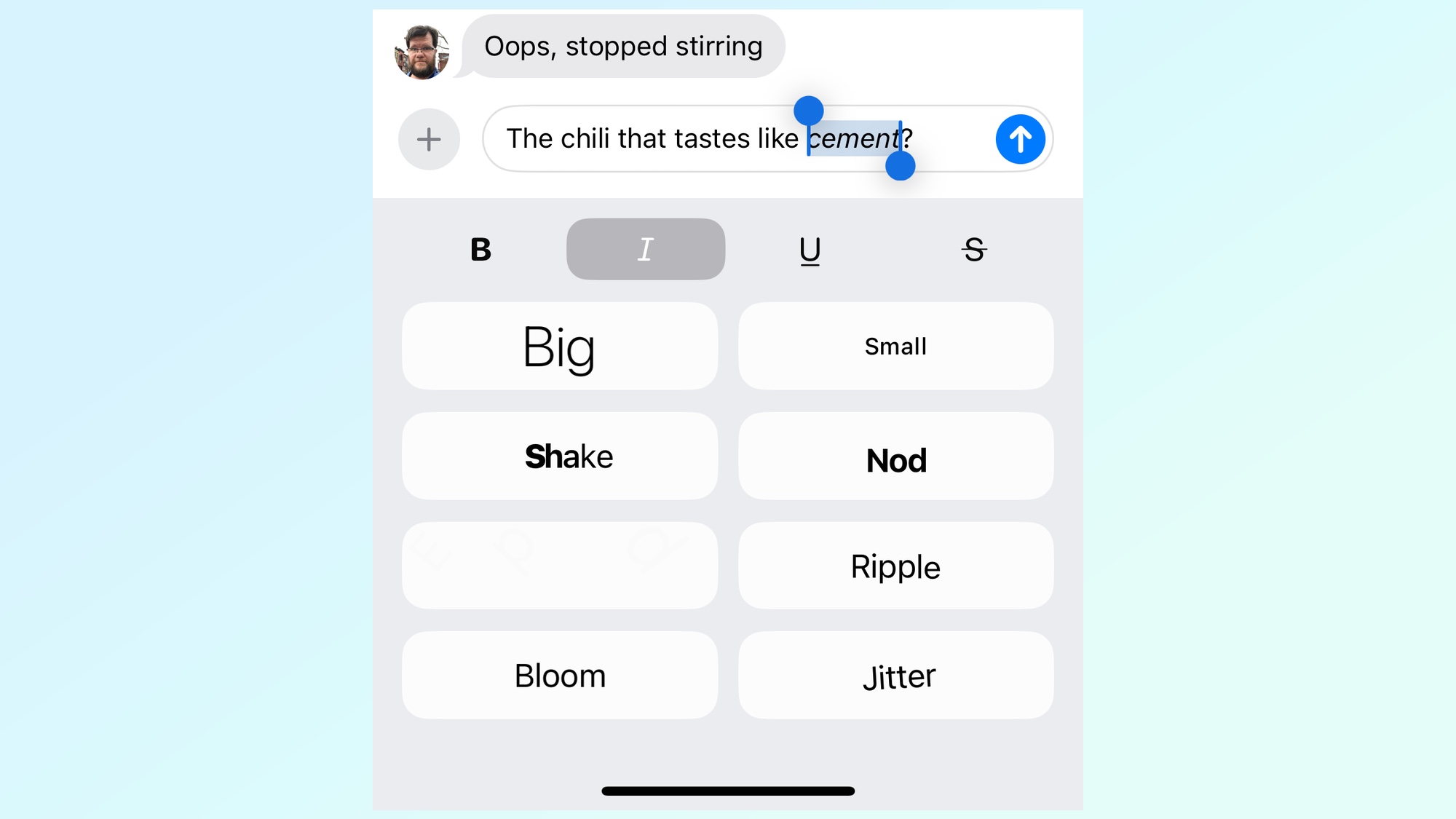
On a more practical level, you can now pre-schedule your messages in case you don't want to send something right away, and satellite comms-compatible iPhones (the iPhone 14 and later) can send iMessages and SMS via satellite, helping keep you connected when away from cell reception.
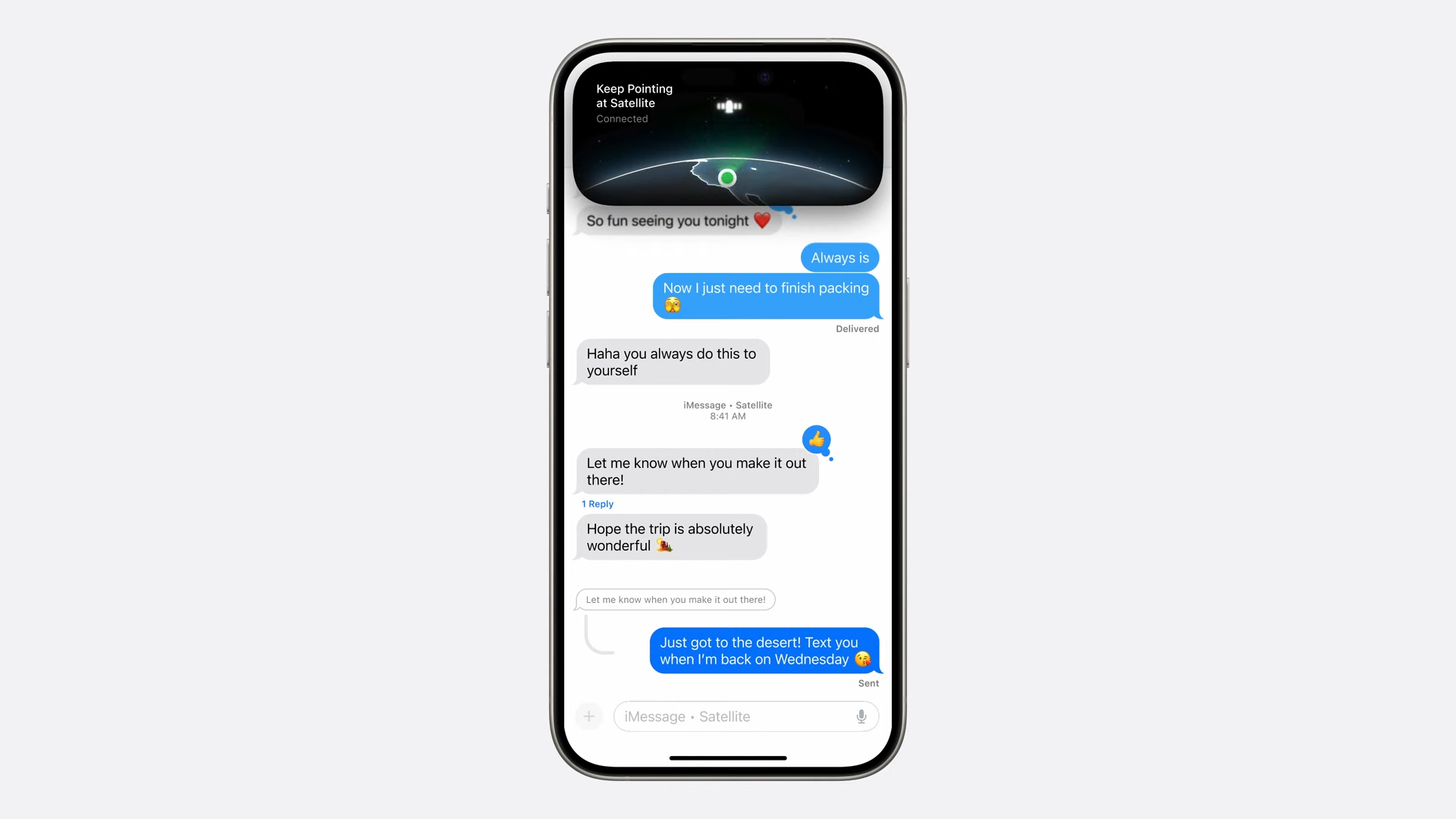
As had been indicated in the build-up to WWDC, Apple has added support for RCS in iOS 18, which will improve inter-platform texting with Android users by adding more advanced features like read receipts and tapback support among other capabilities. The green and blue bubbles will remain, though.
iOS 18: Mail
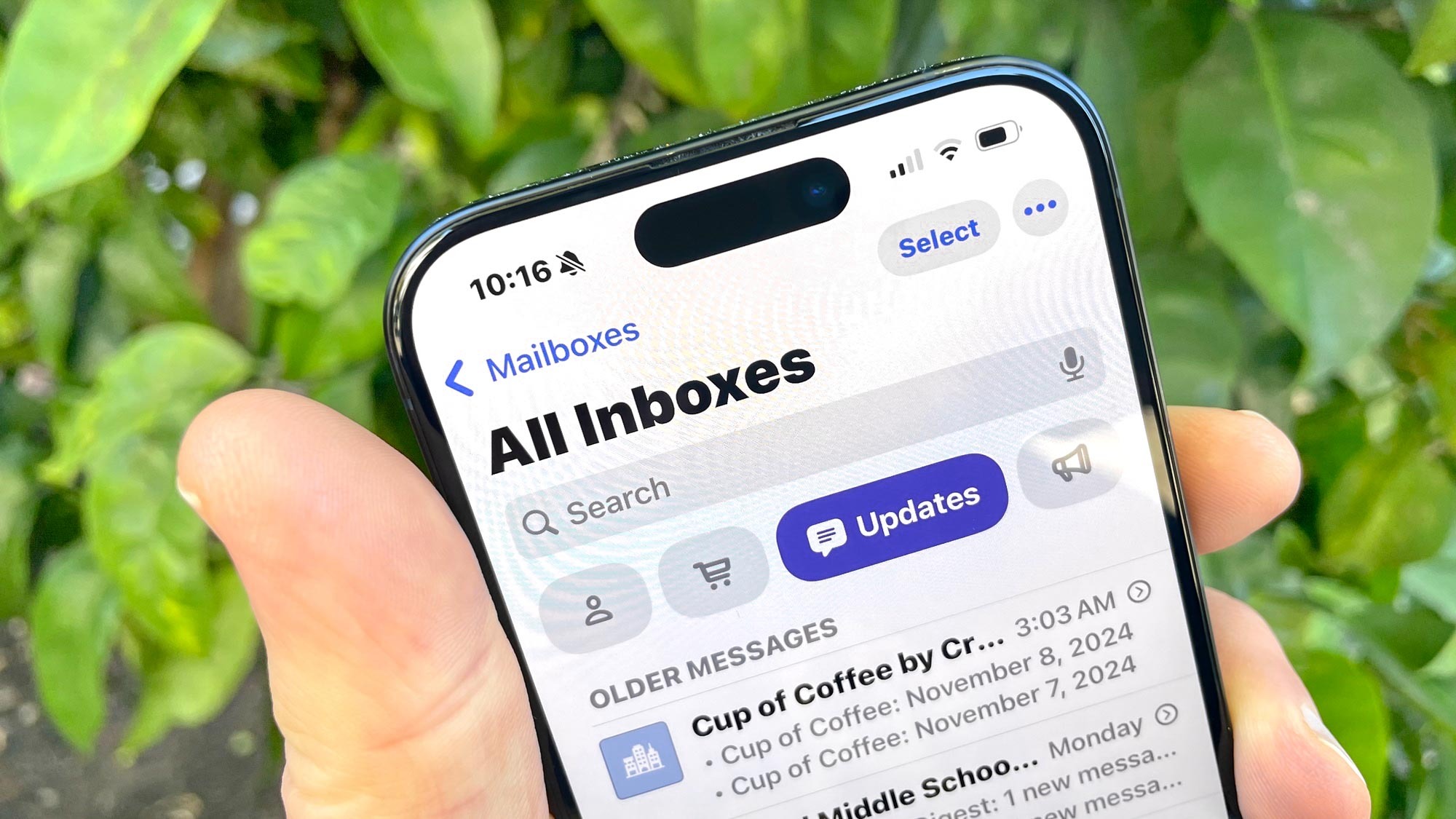
Emails on iPhone are now categorized in iOS 18 Mail, with automatic sorting for transactions, newsletters and personal emails. Don't like the new look? We can show you how to change Mail back to a single inbox.
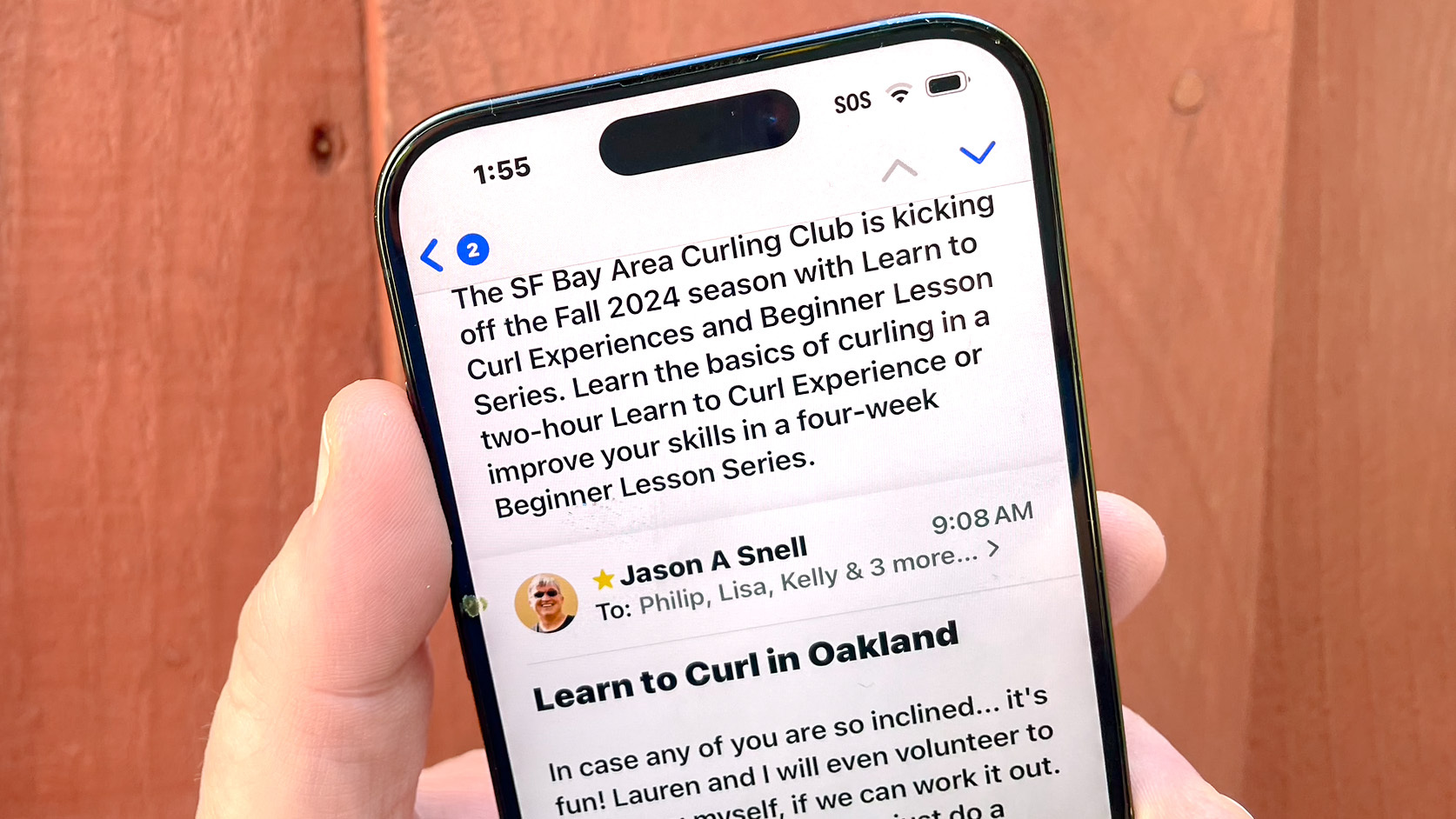
Mail's new look is available to anyone who installs iOS 18, but other Mail changes are specific to the new Apple Intelligence features. That includes summaries, which now appear in the inbox instead of the first few sentences of an email — now you get an auto-generated summary describing the emails contents.
You can also use Apple Intelligence to summarize individual messages or — more appropriately — lengthy threads where multiple people are chiming in. A summary button at the top of the message creates a paragraph that highlights the major takeaways in an email — and it's pretty accurate, in our testing.
iOS 18: Maps
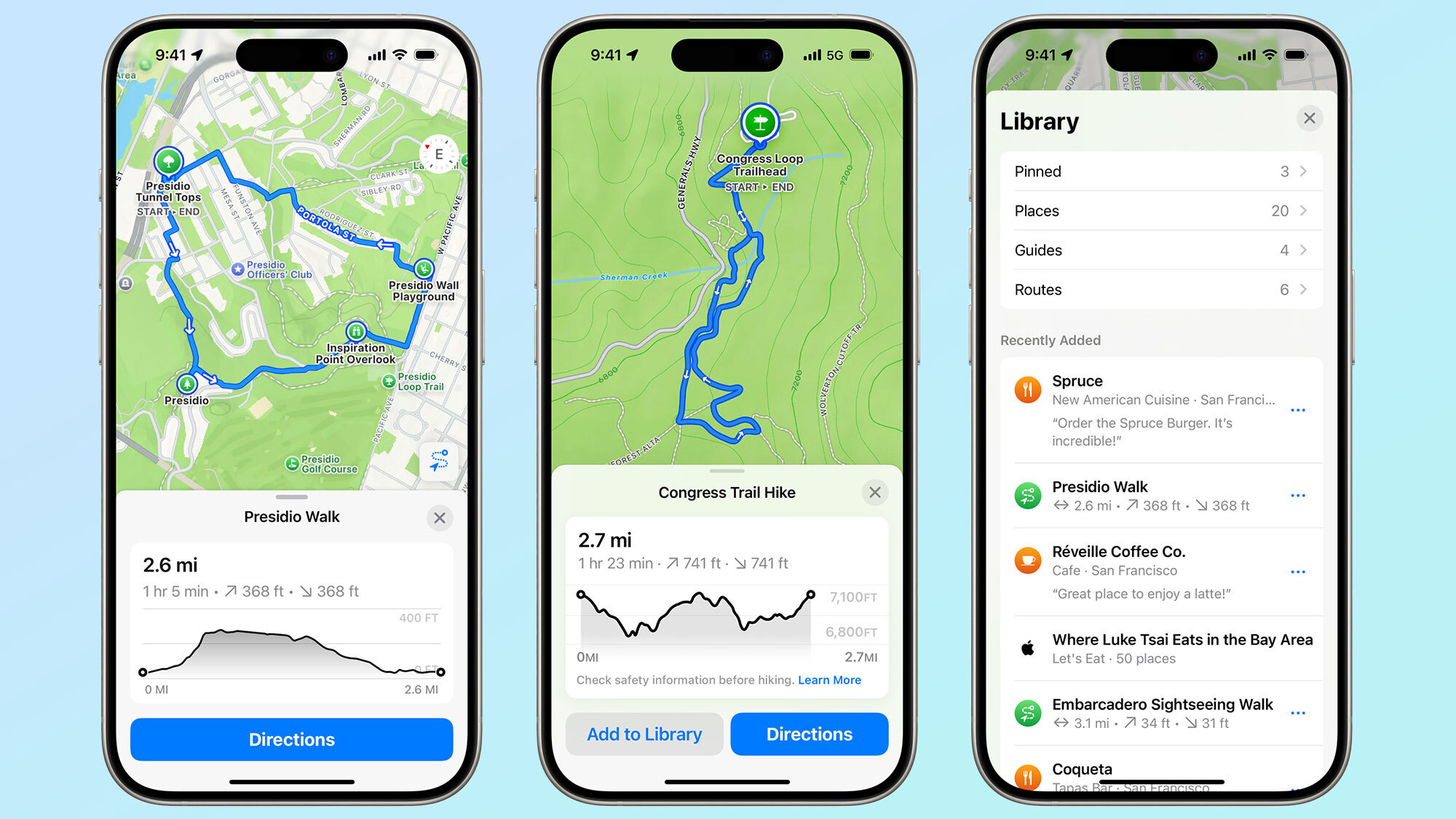
For keen walkers, iOS 18 Maps now offers walking and hiking routes, including for a number of U.S. National Parks. These routes can be saved for offline use, and you can set your own routes. Trail routes show the distance as well as the amount of elevation you can expect on a hike, which should help you visualize if the route is too strenuous for your skill level.
iOS 18: Wallet
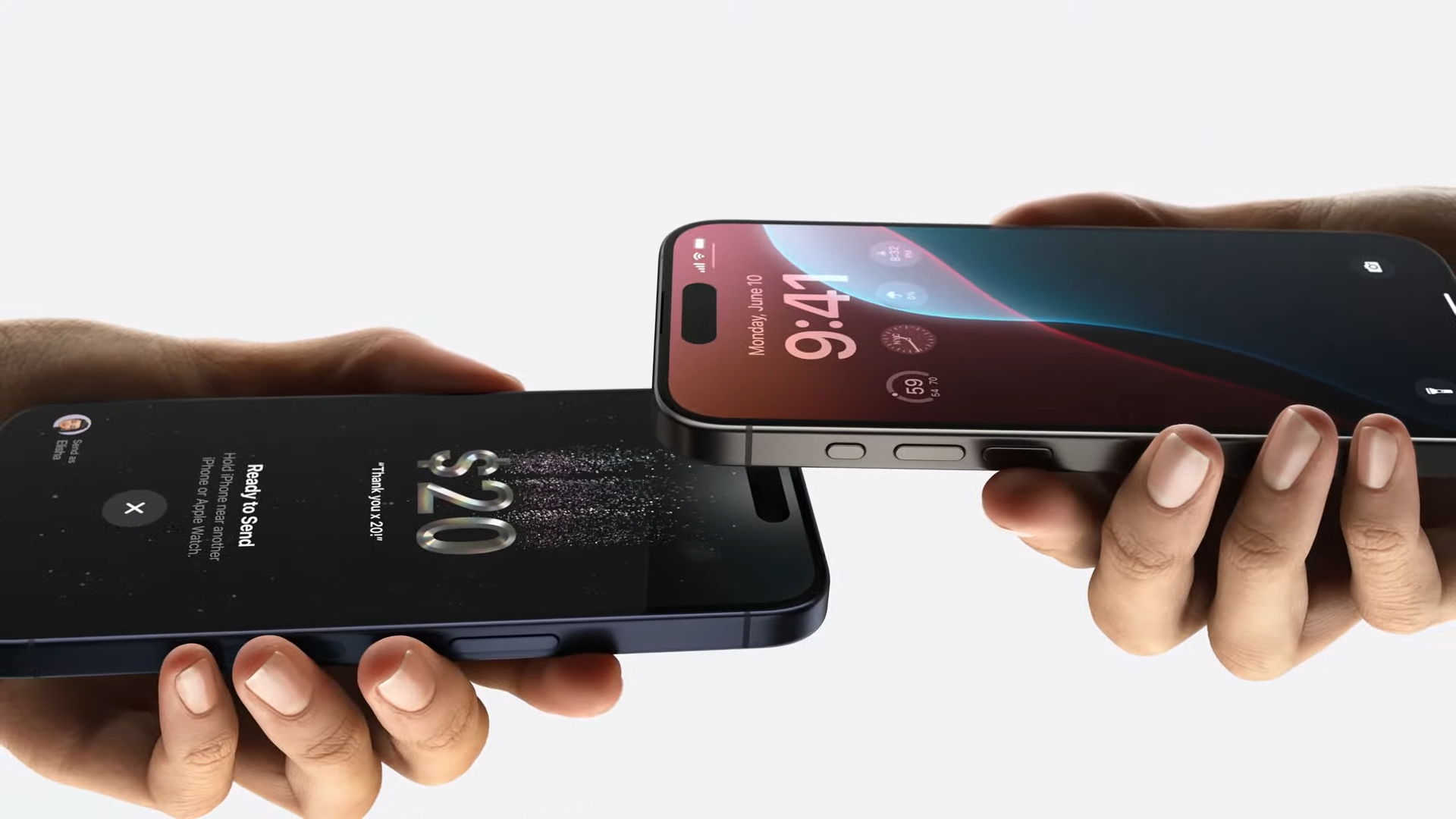
Instead of using a banking app, the Wallet app now supports Tap to Cash for sending small amounts of money between iPhones by bringing the tops of two iPhones together. The feature works a lot like the NameDrop tool Apple released in iOS 17 a year ago.
As for Apple Pay, it now works with your various loyalty schemes so you get points for your payments. Tickets kept in your wallet have a new look too, plus link to supporting information to help you when it's time to attend your event. Check out our iOS 18 Wallet guide for more.
iOS 18: Journal
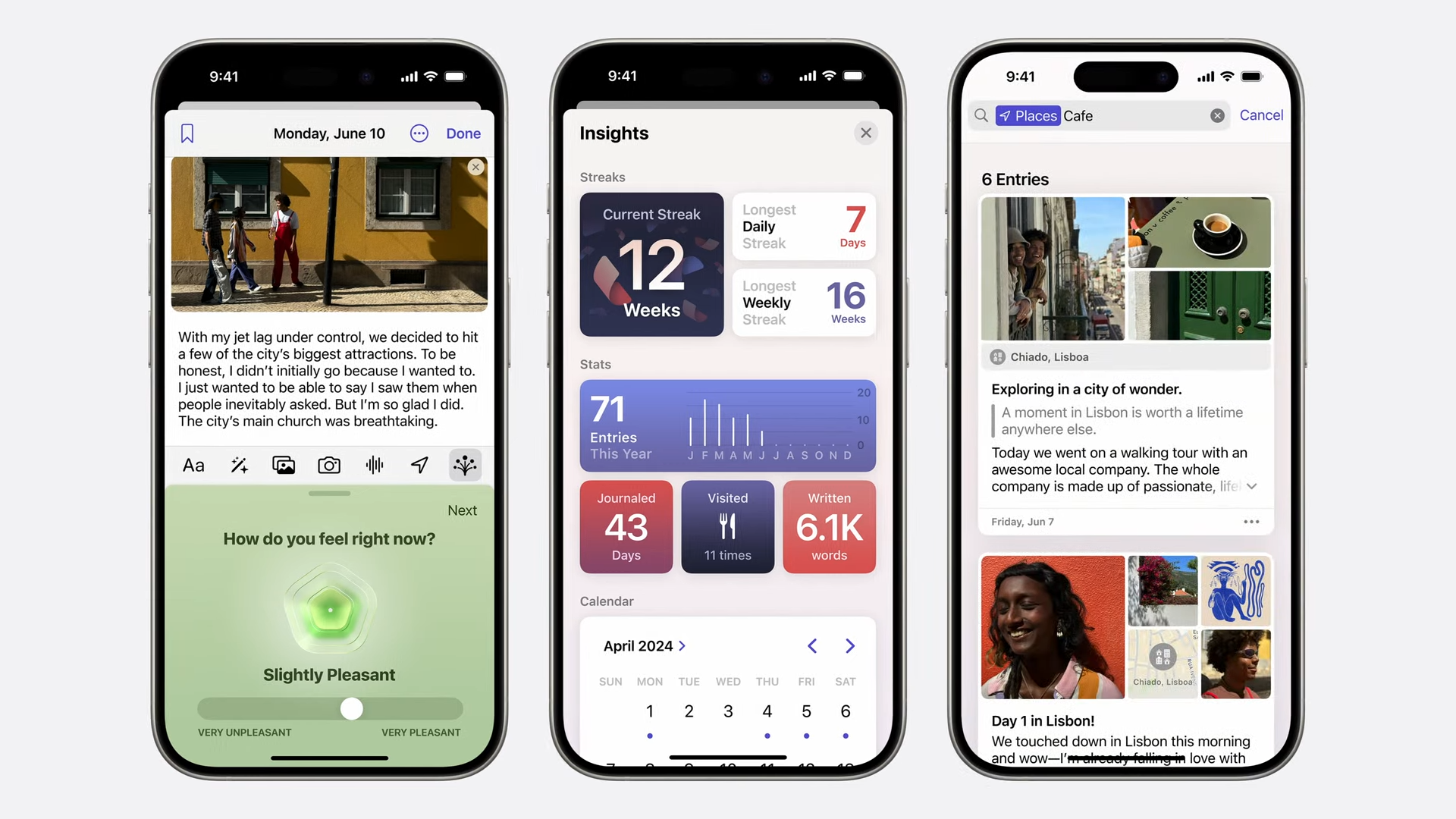
Apple's reflection and mindfulness app gets an upgrade to help you reminisce. Search has been improved to help you find older entries, and a new Insights screen lets you track your stats.
Our look at the iOS 18 Journal app goes into greater detail on these changes.
iOS 18: Game mode
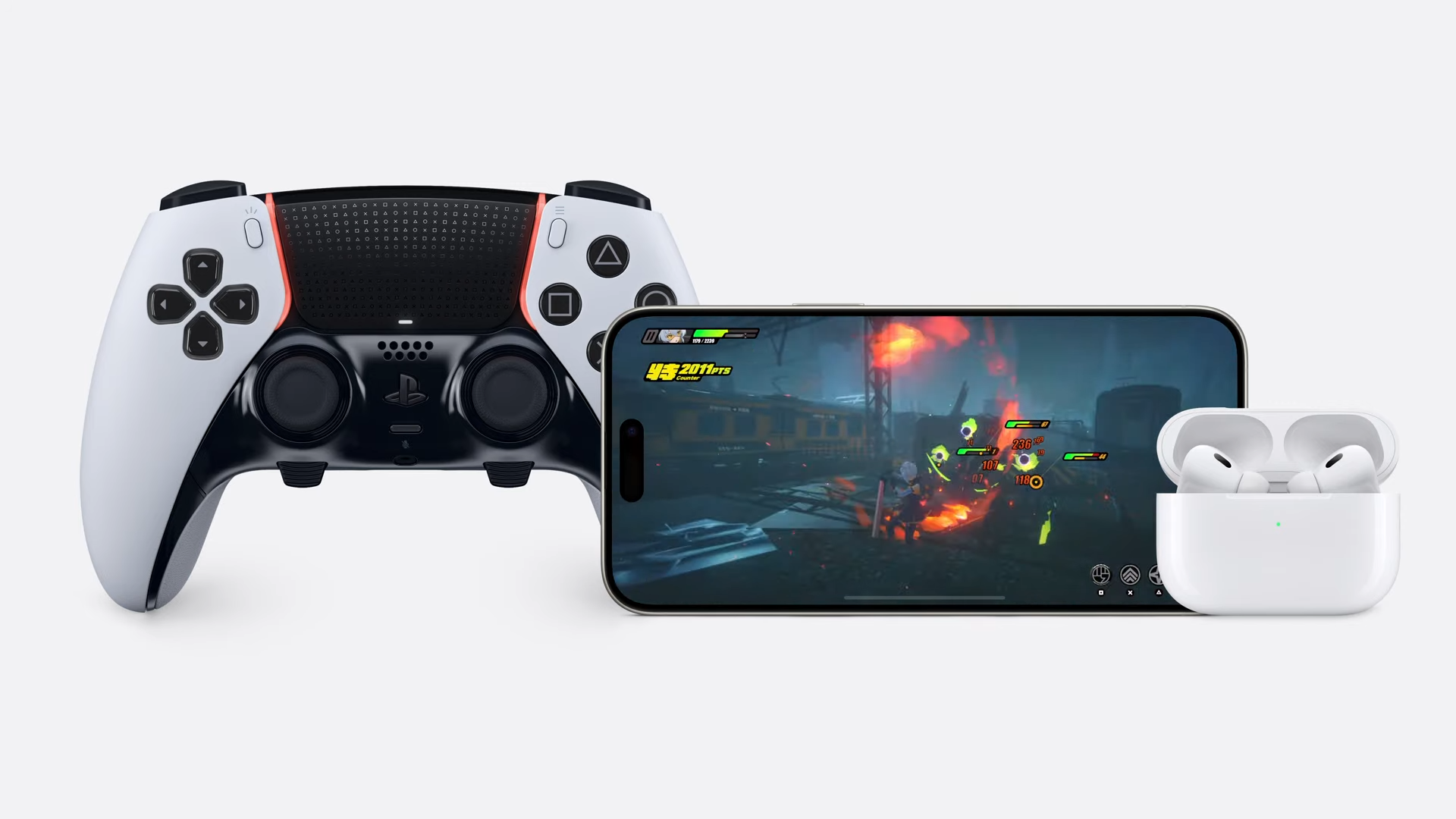
Here's a feature borrowed from macOS. Game Mode is now an iOS 18 option, to help your iPhone focus more on running your game smoothly and less on background functions. It'll help with Bluetooth latency too, making controllers and audio accessories feel more responsive.
iOS 18: Photos
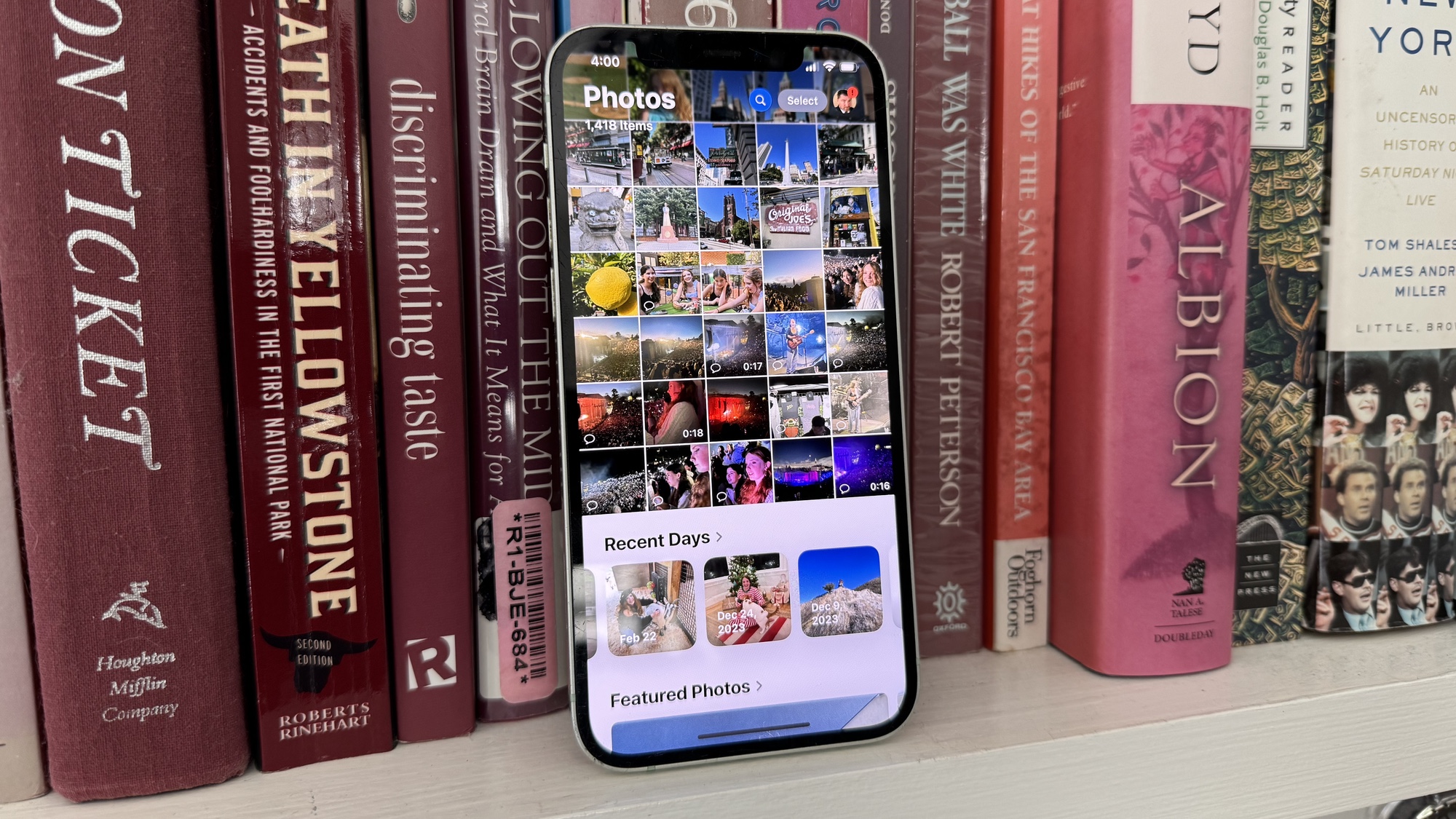
Apple saved one of the biggest overhauls in its software update for the iOS 18 Photos app. Your photo library now appears at the top of the screen, with collections of photos available as you scroll down. The initial iOS 18 beta also had a carousel of favorited photos you could swipe to from the photo library, but that addition was dropped during the beta process. At least, the new photo filter features in Photos make it easier to find what you're looking for.
The Photos overhaul has proven to be divisive with some people not caring for the new look. However, at least on of our editors says the changes to Photos have grown on him the more he uses the revamped app.
iOS 18: Apple Intelligence
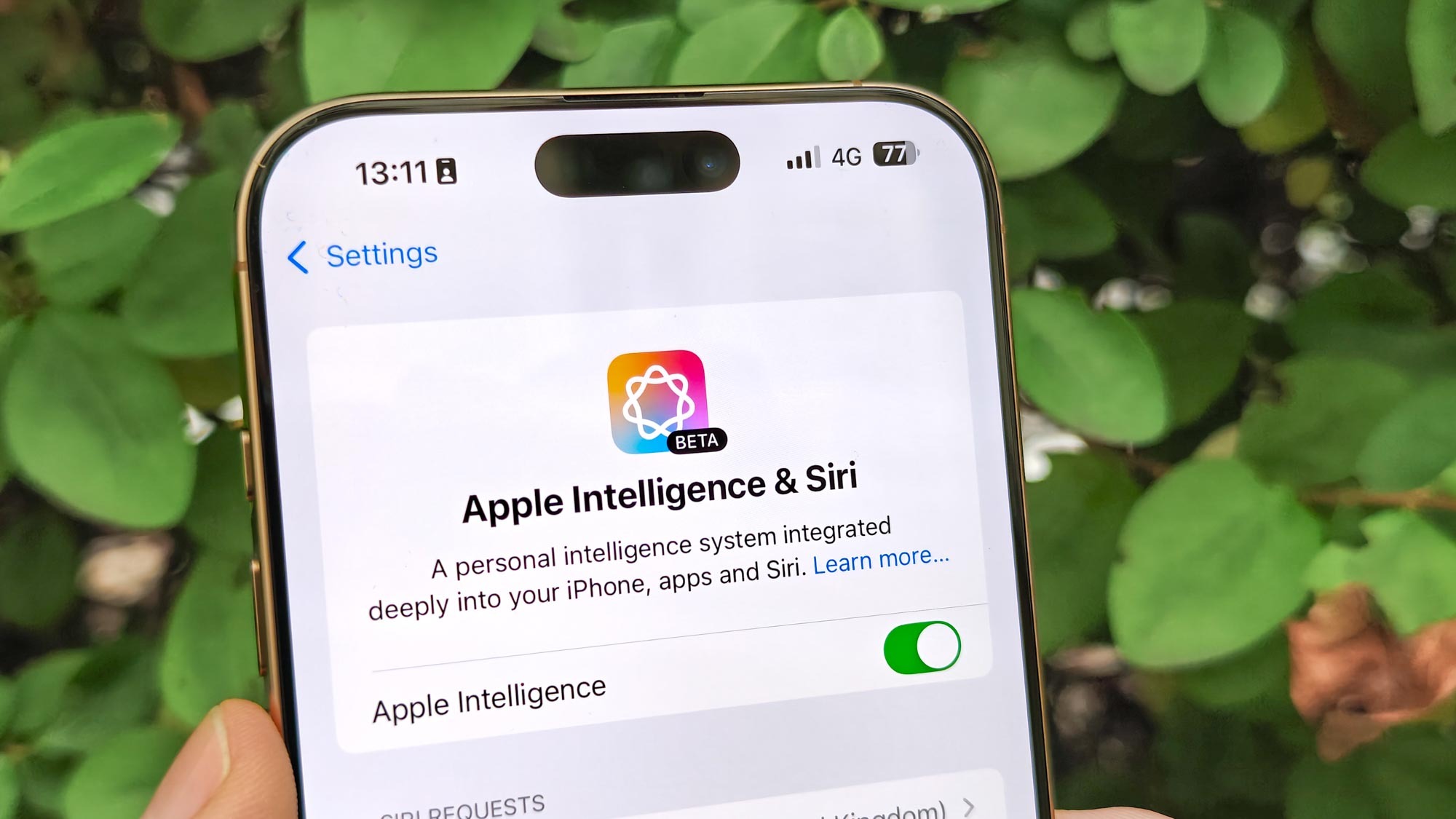
The new Apple Intelligence suite of features extends beyond iOS 18 — iPads and Macs get these features, too — but it's certainly a big focus of this year's software updates, especially the iOS 18.1 and iOS 18.2 releases. And Apple has already indicated that more Apple Intelligence features are on the way via software updates coming in 2025.
At a very basic level, Apple Intelligence features writing and image editing tools. Writing Tools include the ability to proofread your text, get suggestions on tone changes, and get auto-generated summaries. The iOS 18.2 update expands the Writing Tools feature set with the ability to describe a specific change you want to make to your text.
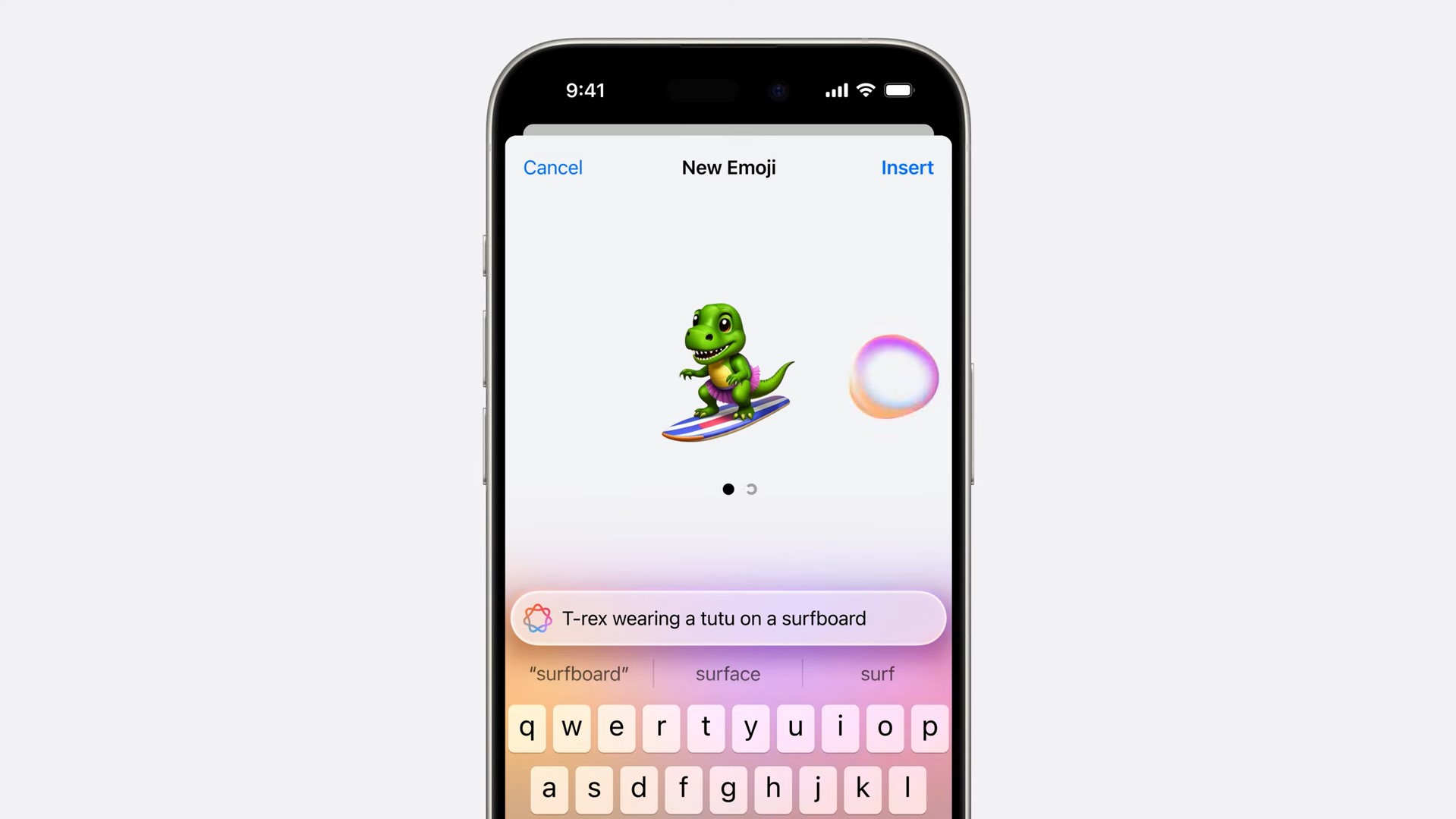
Image editing tools include Clean Up, which works a lot like Google's Magic Eraser — you can remove distracting objects or people from a photo and AI fills in the background to make everything look seamless. Memory Movies lets you create a slideshow from your photo library with just a text prompt.
As of iOS 18.2, there are now generative AI features available on your iPhone. With Genmoji, you can use text prompts to create a custom emoji, while the Image Playground app uses text prompts to create images (mostly portraits at this point).
Siri gets a revamp, too, highlighted by a new glowing border indicator when you summon the assistant to show it's listening. Siri can now follow context-aware commands so you don't have to be so specific when trying to look for a file. It'll also bring up feature guides if you need help operating a part of your iPhone. Future updates promise to let Siri work across multiple apps to fulfill a request or edit an image for you, too. At some point in 2025, Siri gains on-screen awareness, to make its actions more context-specific.
Apple promises to process your requests securely on-device, or via "Private Cloud Compute," which uses online features but without sharing your data with anyone, even Apple. And with your permission, other AI tools like ChatGPT can be used to let it work from a wider knowledge base when needed.
These features are limited to the iPhone 15 Pro and iPhone 15 Pro Max, equipped with Apple's latest A17 Pro chip as well as to the iPhone 16 models. Some features, like more natural language searches in Photos, are available on older iPhones, but for the most part, you need a pretty recent phone to take advantage of Apple Intelligence.
iOS 18 outlook
Apple Intelligence remains a work in progress, even after two software updates. And like we just said, it's not available for every iPhone user. Still, iOS 18 feels like a significant update with a number of improvements that should make your iPhone more of a pleasure to use. If you haven't given it a try, now's the time to dive right in and experience it for yourself.







